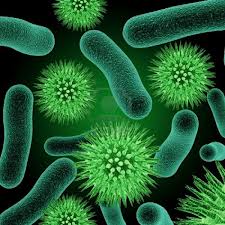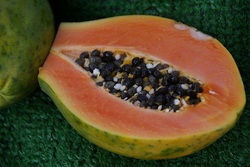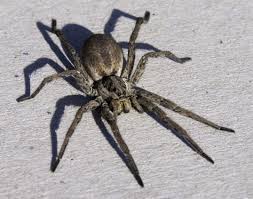 The superbugs are going stronger. There are mechanisms of evolution involved in drug resistance. According to our class lectures, there are 5 causes of evolution: mutation, migration, genetic drift, natural selection, and artificial selection. The main mechanism of evolution involved in drug resistance is natural selection. Natural selection is “the process whereby organisms better adapted to their environment tend to survive and produce more offspring” (Dictionary.com). The problem that people worldwide is that these diseases are developing immunity to the medicine that people once took to get rid of them. This is an example of natural selection because the diseases, also referred to as “superbugs” in the article, are changing their genetics in order to be able to survive. This genetic adaption is very similar to humans. For example, personally, I had a bacterial infection a few years ago. However, my body changed itself, so that I could be immune or at least less susceptible to this infection. This is what the “superbugs” are doing. They are identifying what is harming them and building immunity to them. This should be very concerning to everyone. Illnesses that we could heal with a quick scrawl of a doctor’s prescription no longer can be stopped. This means that even the common cold could become strong enough to kill people, drugs or not. As stated in the article, “there are an increasing number of infections for which there are virtually no therapeutic options”. We should definitely start “new discovery, research and development” for new medicines and treatments. It is a matter of survival. We either have to adapt and build immunity to these diseases, killing many people in the process, or start developing new medicines. If not, we will be out-adapted by these superbugs.
Doing something with the skills and talent you have and acquire throughout your life rather than just keeping them for your own use is crucial. Like it says in the Bible- “If I speak with the tongues of men and of angels, but do not have love, I have become a noisy gong or a clanging cymbal”-, you could have amazing talents, but if you don’t apply them and use them for other people, you’re as useless as a clanging cymbal. Personally, to prepare myself for the world of application, I will work on not only memorizing the knowledge I acquire, but making it pa’a. My kumu always tell me that there is a difference between memorizing and things pa’a. Memorizing is the step below pa’a; you know the information, but you can’t apply it. Pa’a is when you know the information and you can use it to make the world a better place. This is similar to test taking. Personally, I am a horrible test taker. I know all of the knowledge most of the time; I just can’t put it on the test paper. Like my history teacher told me, knowledge isn’t worth anything unless you can show other people what you can do. In conclusion, in order to prepare for a world that doesn’t care what I know but rather what I do with what I know, I will make sure my information is pa’a, firm in my mind, because if it’s not, I might as well be a worthless, noisy gong.
 Rainbow papaya is a GMO. We need to continuously genetically modify domesticated organisms. We, as humans, need to do this because domesticated organisms, both plants and animals, need protection. According to Webster’s New World Dictionary, the word “domesticate” means “to tame (wild animals) and breed for human use” and “to adapt and cultivate (wild plants) for human use”. Notice the words “tame”, “breed”, “adapt”, and “cultivate”. All of these words mean that humans changed the organism, and this is exactly right. Domestication starts with a wild organism. This wild organism has its own defense mechanisms to protect itself and can survive in the wild without human intervention. For example, as stated in the article “Hawaiian Kalo, Past and Future”, “kalo is considered poisonous because its tissues contain an acrid component.” This acrid component is an example of a protective measure that wild kalo have. For animals, from personal experience, I have seen the behavior of wild dogs. Wild dogs tend to be more aggressive, vicious, and very wary of a human’s actions; this hostile behavior is a defense mechanism that allows the dog to survive. However, over time, humans are able to change the genetics of the organism by placing the organism in a different environment or methods such as cross-breeding (which was commonly used by the native Hawaiians to create favorable kalo varieties). However, when changing the organism’s genetics, humans typically get rid of all of the defense mechanisms that the plant or animal has created for itself. For example, roadkill shows that domesticated cats do not have the same heightened awareness of their surroundings as their wild ancestors did. In the case of plants, pulling from my neighbor’s mana’o, unattended plants will die because bugs will eat them or weeds will overpower them; the domesticated plants cannot survive on their own! In addition to bugs, cars, and other predators, domesticated organisms are less able to protect themselves due to the increased likelihood to develop diseases. Domesticated organisms are genetically uniform (class lectures). Pulling from my prior knowledge, genetically uniform organisms are more likely to develop diseases than wild, genetically diverse organisms. For example, kalo tends to be a pretty genetically uniform plant due to a tendency to reproduce it asexually. According to the Bishop Museum website, a cutting of the huli (a cutting of the parent plant) was planted into the ground. This means that they were growing a clone of the parent plant, thus perpetuating the genetically uniformity. Now let’s go back to the definition of domestication. The second part of the definition says, “for human use”. Humans domesticate organisms not to benefit the organism but to benefit us as humans. GMOs provide humans with money. Seedless grapes are an example of this. By grafting methods or the usage of a chemical called giberellic acid, grape farmers change the genetics of normal grapes and are able to grow grapes without seeds (soilassociation.com). If you think about it, growing grapes without seeds is completely impractical because the seed is how a plant is able to reproduce. However, you have to remember that domestication is for human benefit, not the plant’s benefit. Therefore, it is not impractical in the eyes of domestication to grow seedless grapes because humans like them better than grapes that do have seeds. Humans also continue to modify domesticated organisms to make the organism evolve. Like I mentioned earlier, domesticated organisms are genetically uniform. This means that they don’t have many genes to pull from the gene pool. Humans help the plants to become more genetically diverse again by breeding them with other varieties of the organism. One example of this is the cross-breeding of kalo. According to my kalo breeder neighbor, cross-breeding kalo allows new varieties of kalo to be produced. This is beneficial because kalo is typically reproduced asexually (cutting the huli and creating a clone of the parent plant). Cross-breeding allows diversity to come back to some degree and helps the kalo to be more diverse. One example of this is cross-breeding for dogs. According to my friend who is a dog cross-breeder, cross-breeding dogs can be good because purebred dogs are more immune to diseases since they are so closely-interbred. Cross-breeding allows a more evolved type of dog and kalo emerge. Sadly, without this humanistic intervention, not much evolution would take place in these domesticated organisms. In conclusion, humans constantly genetically modify domesticated organisms to promote evolution (even though it’s artificial) and to benefit the humankind financially, not the plant.
 When Sir Ken Robinson said, “Brilliant people don’t think they are”, he meant that brilliant people are often degraded to believe that they aren’t smart. In the video, Sir Ken Robinson talks about the schism of the “academic” and the “nonacademic” people. The word “academic” in this video had the denotation of people who get good grades. However, from personal experience, I know that grades don’t necessarily determine how smart a person is. I know people who have a 3.0 GPA, but could beat my 4.1 butt in geography or any other subject any other day. This is where the schism comes in. For some reason, there is a belief that if you don’t have good grades, you aren’t smart. This is what Sir Ken Robinson means by his statement. Brilliant people are tricked into believing that they aren’t smart, just because they don’t have the best grades in the class or have the highest GPA. Hopefully, one day, this flawed mindset will change.
Kamehameha Schools supports, yet at the same time, doesn’t support the factory model of education. According to the video, the factory model of education is based on the two pillars of intellect and economics. Unfortunately, the current system in place was designed and conceived for a different age (the Enlightenment). People don’t realize that education needs to fit the student’s needs in THIS day and age, especially with all of the kids with ADHD. Kamehameha Schools supports this outdated model of education because school is very rigid. Most of the learning consists of the student sitting in a chair, while the teacher tries to force-feed information down the student’s throat. This is a very outdated technique. However, Kamehameha Schools doesn’t support the factory model of education because it also has outside learning. Although most of the learning at Kamehameha School is force-feeding, it also has learning being taught outside of the classroom (ex: the mala). The fact that Kamehameha Schools offers this kind of learning shows that it is not supporting the factory model of education.
Using divergent thinking to solve problems is effective. From personal experience, if you have tunnel vision and can only look at the problem in one light, you will have a very difficult time solving the problem. One time, my friend and I had a dispute. Since my friend wasn’t willing to look at any other perspective than her own, the problem was never completely resolved. Divergent thinking also helps people find the most effective solution to problems. By looking at the problem at different angles, you get to find the solution that will fit the situation the best. Makawalu relates to divergent thinking. According to Hawaiian legends, makawalu literally means “eight eyes”. Hawaiian thinking is that people, especially students, should be able to have many different views/perspectives of the same situation, being able to have “eight eyes”. The word divergent, according to dictionary.com, means “increasing as more terms are added”. Thus divergent thinking is being able to look at all of the possible venues or solutions and being able to choose the best solution to solve the problem. Both of these things require people to have an open mind and look at every aspect of a problem before deciding on their decision. In conclusion, makawalu and divergent thinking are the same thing under different names.
|



 RSS Feed
RSS Feed